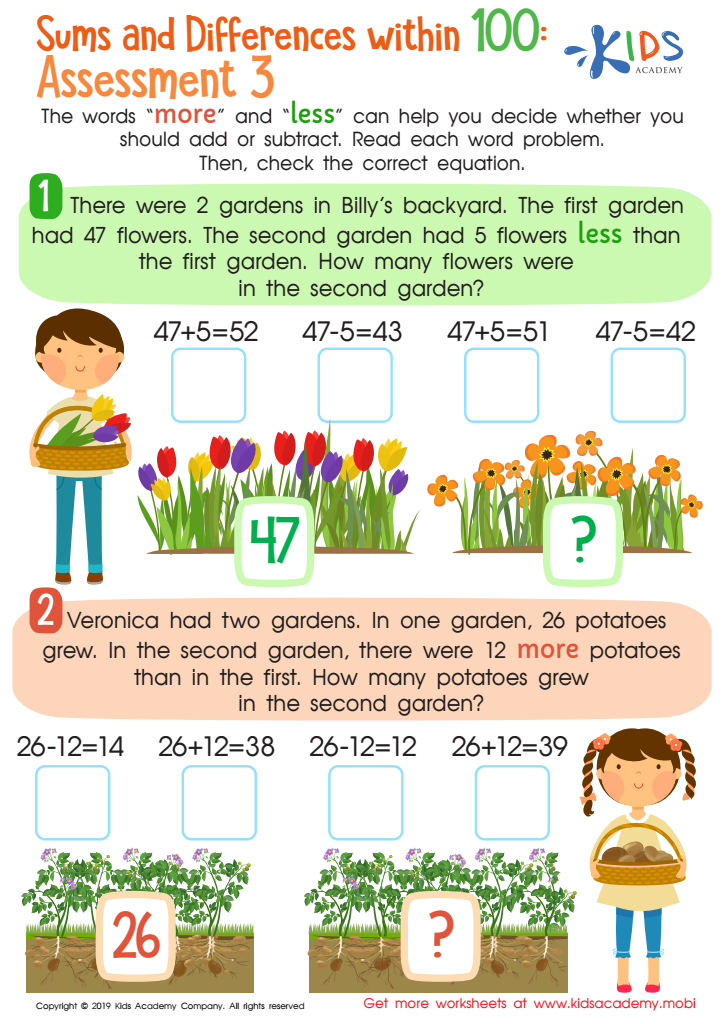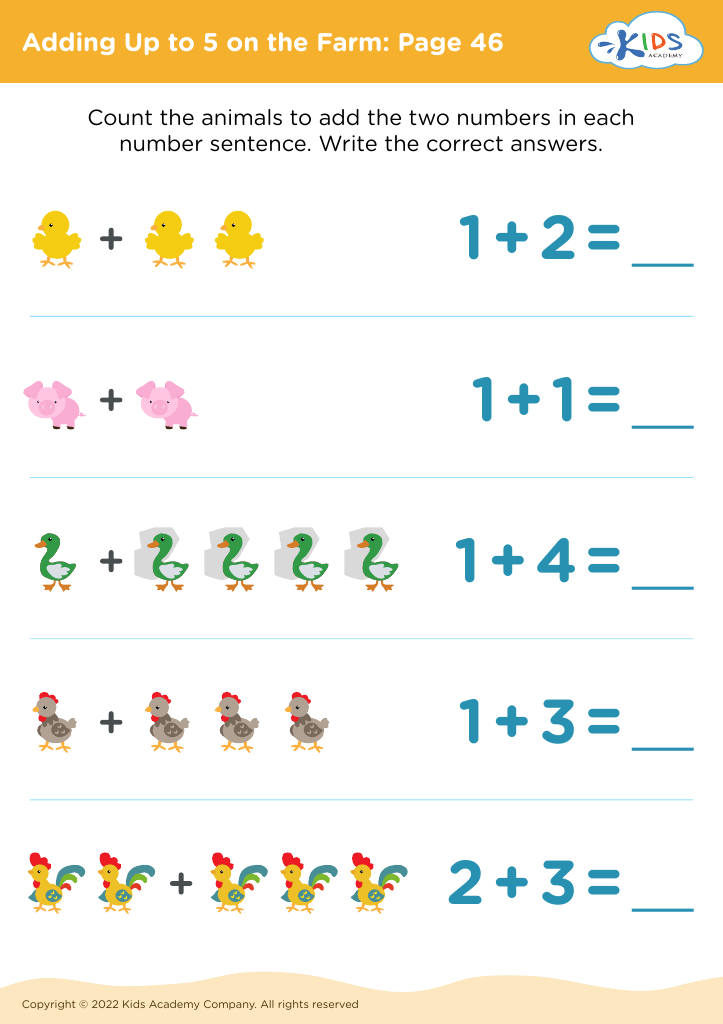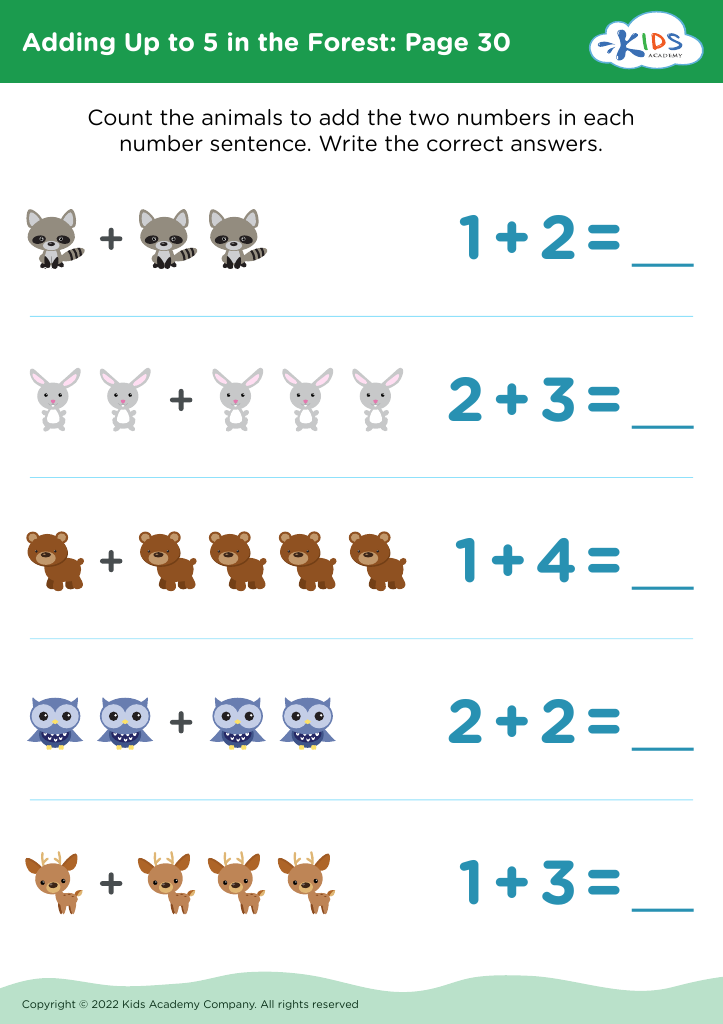Number comprehension Addition Worksheets for 5-Year-Olds
4 filtered results
-
From - To
Nurture your child's math skills with our engaging Number Comprehension Addition Worksheets designed for 5-year-olds. Created to boost their confidence and build a strong foundation in mathematical concepts, these printable worksheets introduce basic addition in a fun, interactive way. Through colorful and captivating activities, your child will learn to recognize numbers and perform simple addition, paving the way for future math success. Perfect for early learners, these worksheets make math enjoyable and straightforward, encouraging youngsters to practice and improve their skills with enthusiasm. Ideal for both classroom and home use, help your child excel in math today!


7 Continents and 7 Seas Worksheet


Sums and Differences Within 1 - Assessment 1 Worksheet
Number comprehension and addition skills form the cornerstone of a child’s mathematical development, and fostering these skills in 5-year-olds is crucial for several reasons. Firstly, early math skills are strong predictors of later academic achievement. When children grasp the basics of addition early, they gain confidence and enthusiasm for learning, paving the way for more complex mathematical concepts.
Understanding addition at an early age also promotes cognitive development. It helps children develop logical thinking, problem-solving skills, and the ability to recognize patterns. These cognitive skills are not limited to math but extend to other subjects and everyday decision-making processes.
Socially, addition skills instill a sense of accomplishment and teamwork. Activities like group counting games or collaborative problem-solving exercises can enhance social interactions, teach patience, and engender a spirit of cooperation.
Moreover, practical scenarios like sharing toys or determining the number of cookies needed for friends can make math relatable and fun. Integrating addition into daily activities can decrease math anxiety and build a positive attitude towards the subject from an early age.
In sum, recognizing the value of number comprehension and addition in young children sets a foundation for lifelong learning, cognitive development, and social growth. Parents and teachers play pivotal roles in this developmental stage, encouraging curiosity, confidence, and competence in math.
 Assign to My Students
Assign to My Students






















